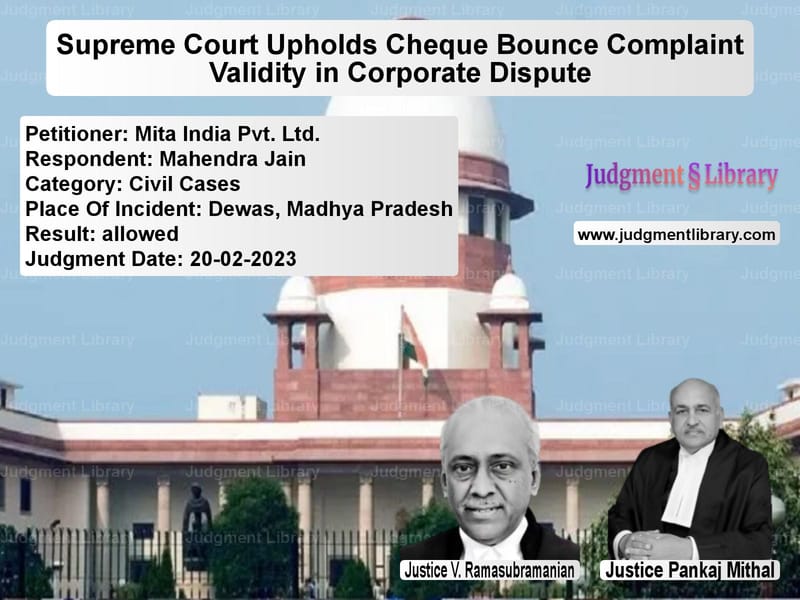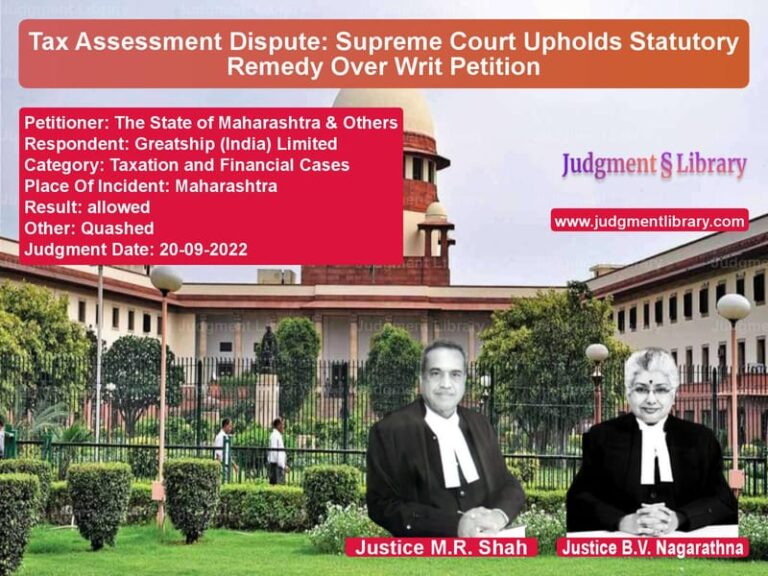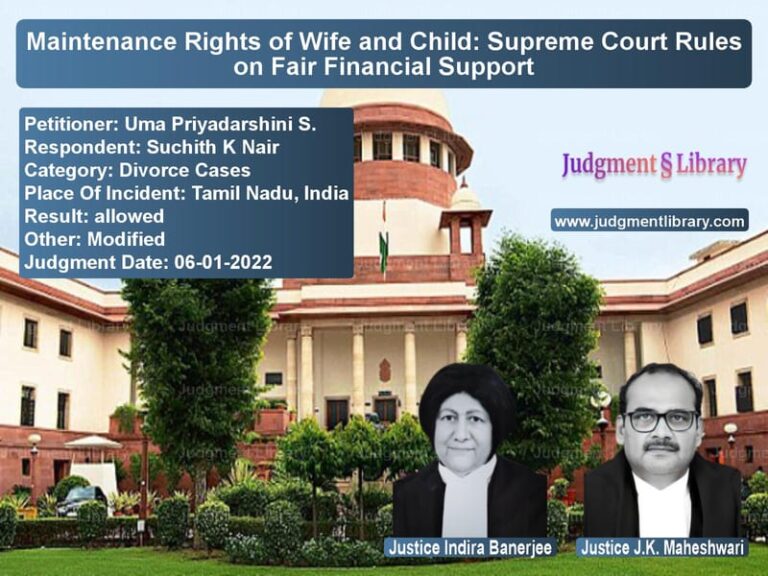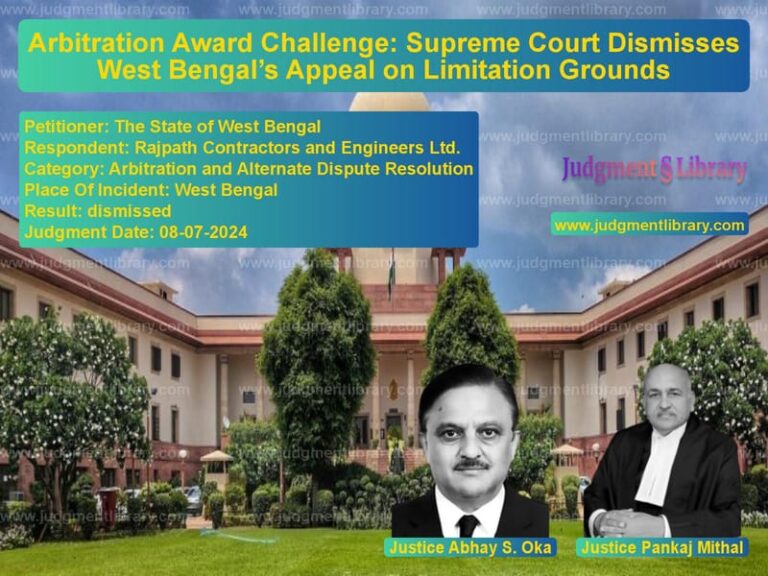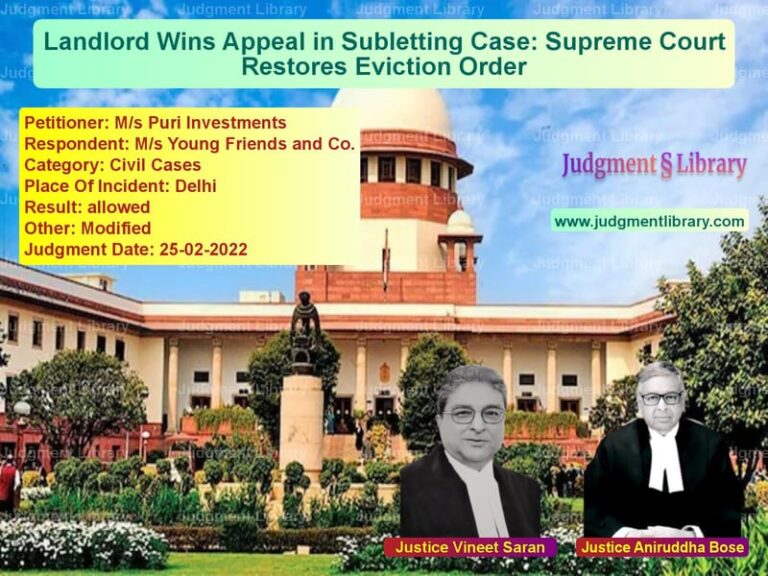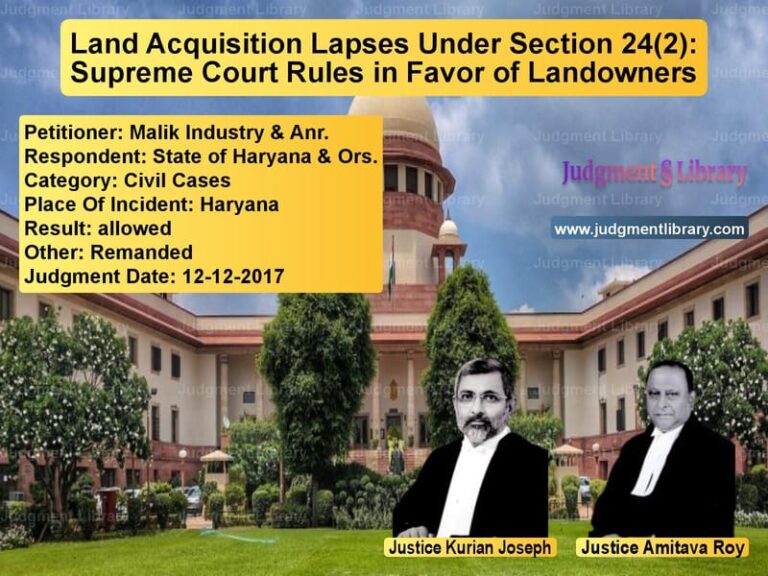Supreme Court Upholds Cheque Bounce Complaint Validity in Corporate Dispute
The Supreme Court of India, in the case of Mita India Pvt. Ltd. vs. Mahendra Jain, addressed a dispute concerning a cheque bounce case under Section 138 of the Negotiable Instruments Act, 1881 (NI Act). The judgment clarifies the legal standing of power of attorney holders in corporate criminal proceedings and reaffirms the conditions under which a cheque bounce complaint is maintainable.
Background of the Case
The dispute arose when Mita India Pvt. Ltd. awarded a contract to the respondent, Mahendra Jain, for shifting a 33 K.V. electrical overhead line at its plant in Dewas. During the execution of the contract, the appellant company mistakenly made an excess payment to the respondent. Upon realizing this error, the respondent agreed to refund the excess amount and issued two cheques in favor of Mita India Pvt. Ltd.
However, both cheques were dishonored with the remark “stop payment” when presented for clearance. This led the appellant company to file a complaint under Section 138 read with Sections 141 and 142 of the NI Act before the Chief Judicial Magistrate (CJM), Dewas.
Legal Issues Before the Supreme Court
The key legal issues in the case were:
- Whether the cheque bounce complaint was validly filed by an authorized representative of the appellant company.
- Whether a power of attorney holder could depose on behalf of the company in a cheque bounce case.
- Whether the High Court was correct in quashing the complaint under Section 482 of the Code of Criminal Procedure (CrPC).
Arguments by the Appellant
The appellant company, represented by senior counsel, argued:
“The complaint was filed by the company through its duly authorized representative, and all necessary procedural requirements were met.”
They further contended that:
- The company’s board resolution appointed Kavindersingh Anand as the power of attorney holder.
- The power of attorney explicitly authorized Anand to appoint special attorneys for conducting legal proceedings.
- Based on this authority, Anand delegated power to Ripanjit Singh Kohli, who filed the cheque bounce complaint.
Arguments by the Respondent
The respondent, Mahendra Jain, challenged the complaint’s validity, arguing:
“The complaint was not filed by a duly authorized person. The power of attorney holder did not have the authority to delegate filing powers to another individual.”
The respondent’s main arguments were:
- The power of attorney holder could not sub-delegate authority unless explicitly permitted in the document.
- The complaint did not contain a specific assertion that the authorized representative had knowledge of the transaction.
- The High Court, exercising its powers under Section 482 CrPC, correctly quashed the complaint to prevent abuse of process.
Supreme Court’s Observations
The Supreme Court analyzed the complaint and power of attorney and made key observations:
- A company can file a cheque bounce complaint through a power of attorney holder if the authorization is valid.
- The power of attorney holder, in this case, was explicitly authorized to appoint special attorneys for legal proceedings.
- The complaint was filed in the company’s name, not in the name of the power of attorney holder, making it legally valid.
The Court referred to the landmark ruling in A.C. Narayanan vs. State of Maharashtra, which established:
“A power of attorney holder can file a complaint under Section 138 NI Act, provided they have knowledge of the transaction.”
Final Judgment
The Supreme Court ruled in favor of the appellant company and set aside the High Court’s decision. Key directions included:
- The cheque bounce complaint was valid as it was filed in the company’s name.
- The power of attorney allowed delegation to special attorneys, making the authorization lawful.
- The case was remanded for trial, restoring the orders of the trial court and revisional court.
Implications of the Judgment
This ruling clarifies several legal principles:
- Validity of Corporate Complaints: Companies can file complaints through duly authorized representatives.
- Authority of Power of Attorney Holders: Delegation of authority is valid if explicitly permitted in the power of attorney document.
- Scope of Section 482 CrPC: High Courts should exercise caution in quashing complaints under inherent powers.
Conclusion
The Supreme Court’s ruling in Mita India Pvt. Ltd. vs. Mahendra Jain reinforces the validity of corporate cheque bounce complaints and the legal standing of power of attorney holders in such cases. By restoring the trial court’s decision, the judgment ensures that procedural technicalities do not obstruct the enforcement of financial obligations under the NI Act.
Petitioner Name: Mita India Pvt. Ltd..Respondent Name: Mahendra Jain.Judgment By: Justice V. Ramasubramanian, Justice Pankaj Mithal.Place Of Incident: Dewas, Madhya Pradesh.Judgment Date: 20-02-2023.
Don’t miss out on the full details! Download the complete judgment in PDF format below and gain valuable insights instantly!
Download Judgment: mita-india-pvt.-ltd.-vs-mahendra-jain-supreme-court-of-india-judgment-dated-20-02-2023.pdf
Directly Download Judgment: Directly download this Judgment
See all petitions in Cheque Dishonour Cases
See all petitions in Contract Disputes
See all petitions in Debt Recovery
See all petitions in Judgment by V. Ramasubramanian
See all petitions in Judgment by Pankaj Mithal
See all petitions in allowed
See all petitions in supreme court of India judgments February 2023
See all petitions in 2023 judgments
See all posts in Civil Cases Category
See all allowed petitions in Civil Cases Category
See all Dismissed petitions in Civil Cases Category
See all partially allowed petitions in Civil Cases Category

